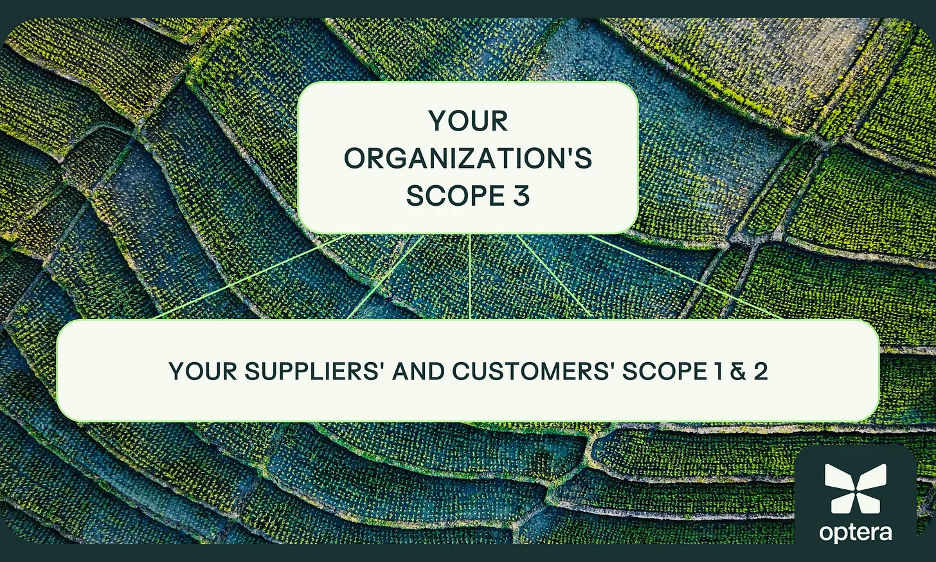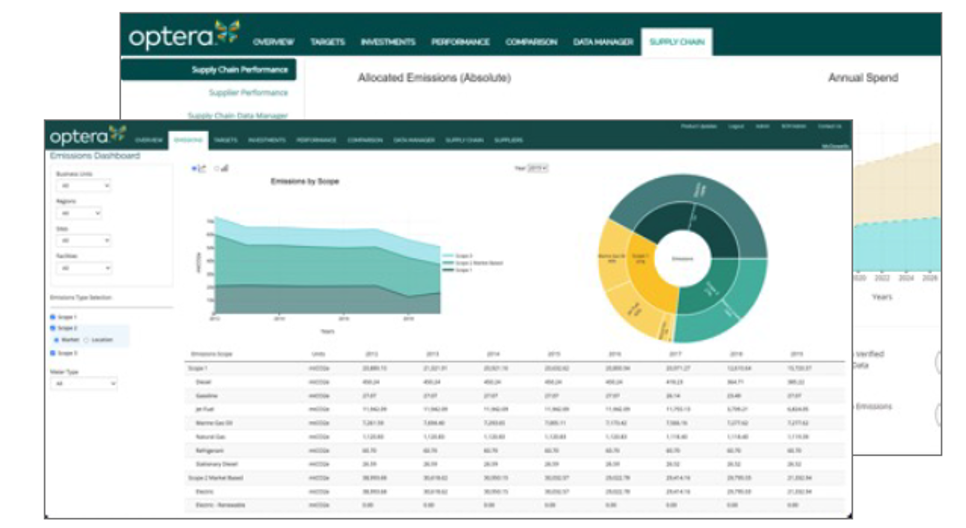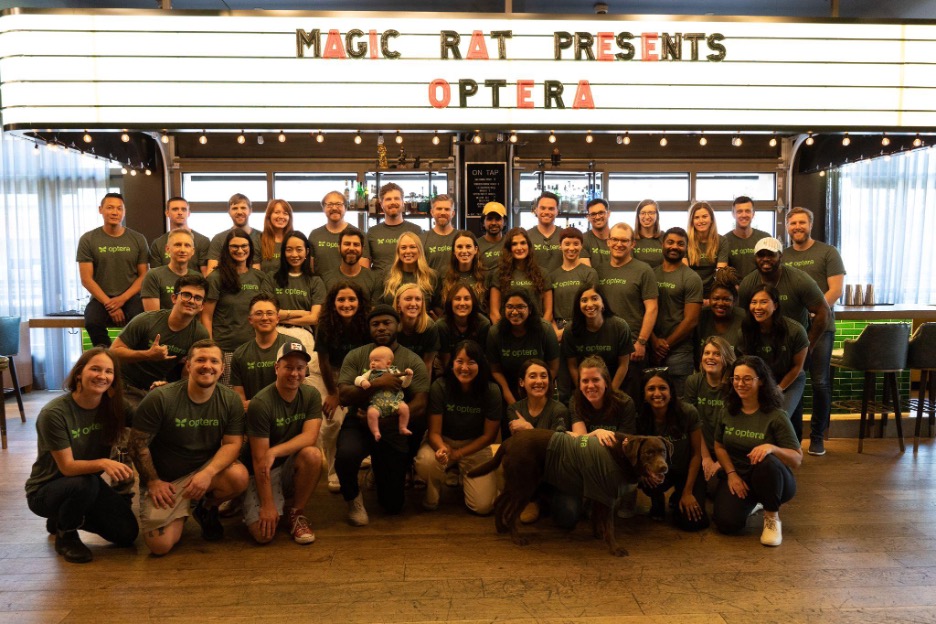Our Investment in Optera: Emissions Management for Complex Supply Chains
Blackhorn Ventures is proud to upsize our investment in carbon accounting software provider Optera’s Series A round alongside Next Frontier Capital, with participation from Engage VC, Overture VC, Massive VC and others.
Pressure is building for public and private companies to disclose the greenhouse gas (GHG) emissions that form both the direct and indirect footprint of their operations. More challenging, these entities need to demonstrate meaningful progress to decarbonize their entire value chain, and do so while continuing to generate profits. As regulatory, consumer, and investor pressure builds, the demand for transparent, pragmatic, and scientifically accurate data, and carbon accounting solutions is rising exponentially. At Blackhorn, we believe the future belongs to those providing actionable data for industrial transformation. Optera’s stellar team of industry veterans is providing direct data to improve the global supply chain.[1]
The first step in emissions reduction is measurement. Carbon accounting systems account for emissions based on the three scopes introduced by The Greenhouse Gas Protocol. Scope 1 includes all direct emissions (i.e., those generated in a company’s facilities), Scope 2 refers to all emissions through purchased energy (e.g., electricity, heat), and Scope 3 includes indirect emissions (i.e., supply chain emissions, emissions from product usage). Since Scope 1 and 2 emissions are directly controlled by the company, they are much easier to calculate than Scope 3.
Optera empowers companies to identify real levers for emissions reduction, resource efficiency, and cost reduction by addressing the complexity of Scope 3 emissions.
According to the Rocky Mountain Institute, (where Optera’s founding team literally helped write the book on corporate sustainability) the average company’s supply chain GHG emissions are 5.5 times higher than the direct emissions from its own assets and operations. And Bloomberg reports only 5% of US companies report Scope 3 emissions. An effective carbon accounting system, therefore, needs to provide transparent and accurate measurements of the company’s supply-chain carbon impacts. Calculating Scope 3 emissions is the most difficult and complex task in carbon accounting since the information needed is not directly available. This makes Scope 3 data the hardest, and most valuable element of carbon accounting.

Optera’s specialization in complex supply chains enables corporations to calculate, track, and drive pragmatic action towards their sustainability and net zero goals.
Optera’s suite of tools automates key functions to help streamline the process while pairing clients with sustainability consultants who can assist with nuanced analyses, ongoing education, and long-term strategies for reduction. In early 2023, Optera launched its holistic supplier engagement platform in partnership with the Responsible Business Alliance–a nonprofit coalition of companies dedicated to improving social, environmental, and ethical conditions in their global supply chains. Through this partnership, Optera’s platform captures all essential emissions data for companies and their suppliers across the global electronics industry, providing a self-serve tool for thousands of suppliers to develop their own Scope 1 & 2 inventory, and visualizing analysis and suggestions to drive action.

Blackhorn upsized our investment to co-lead Optera’s Series A because of a strong alignment with our investment thesis in carbon.
There’s an alphabet-soup of opportunities within the emerging carbon landscape that feel like the ‘wild west’ (DAC, MRV, CCUS, etc.). Scope 3 carbon accounting is not one of those areas. While carbon accounting has grown increasingly competitive in the last 12 months, Optera’s specialization in complex supply chains is unique. First, Optera helps complex organizations create holistic plans for achieving net zero emissions in an economic and timely manner. Second, it enables companies to prioritize and stage initiatives to maximize the impact achieved per dollar and effort invested. Finally, Optera provides systematic and rigorous measurement and monitoring tools to accelerate the transition to net zero while surfacing other future value streams. We believe that carbon accounting “guesstimates” will no longer suffice, and that specialist firms will demonstrate a competitive advantage at least until carbon standards and markets mature significantly. Specialists can leverage domain expertise and accrue large and proprietary data pools to help them scale efficiently and build a competitive moat.
By managing and driving action across the supply chain, Optera plays a pivotal role in the transition to a low-carbon economy.
The Science Based Targets initiative (SBTi) Corporate Net-Zero Standard implores companies to reduce >90% of emissions through direct and indirect value-chain improvements and to use carbon removal and storage to balance the final <10% of emissions. Optera enables companies to do just that. The will is there, but it is daunting to compile, analyze, and trust impact data, especially for businesses with many players across their supply chain. Optera is streamlining that process so their clients can feel confident in the data and focus on action.
One entity’s Scope 3 emissions are someone else’s operational emissions (their Scope 1 and 2). For large multinational companies, this could encompass thousands of organizations (suppliers, customers, portfolio companies, etc.). Across corporate value chains, this interconnected matrix of suppliers creates the single biggest lever for catalyzing action on climate change around the globe.
Optera’s team has the sustainability expertise and technical know-how to lead us to the next frontier of carbon accounting and meaningful action against climate change.
We first met Optera’s three-person founding team – CEO Tim Weiss, CRO Ty Colman, and (former CIO) Jason Denner – in Boulder, Colorado when they were a scrappy, pre-seed company. The team worked together previously at a sustainability consulting firm where their work and research helped inform the foundations of corporate climate action. They’ve made a huge amount of progress since that first meeting led by Weiss, an experienced SaaS product manager with experience at AES Distributed Energy and Uncharted. Colman led sustainability services for Fortune 500 companies, and Denner is a 25-year industry veteran that co-developed Rocky Mountain Institute’s industrial efficiency consulting services. They have built out an impressive team of software engineers, operations managers, and sales professionals to execute on their next phase of growth. We’re excited to continue our partnership with this rockstar team as they accelerate our transition to a low-carbon economy.

[1] The US EPA’s Clean Air Act and Clean Power Act require emissions reporting from mobile and stationary sources (primarily power plants)today, while the US Securities and Exchange Commission’s proposed new climate disclosure rule would result in widespread GHG emissions reporting across a number of new industries. Policies in the Inflation Reduction Act and in several key states also include carbon pricing schemes, which put a price on GHG emissions and provide a direct incentive for companies to reduce their emissions.